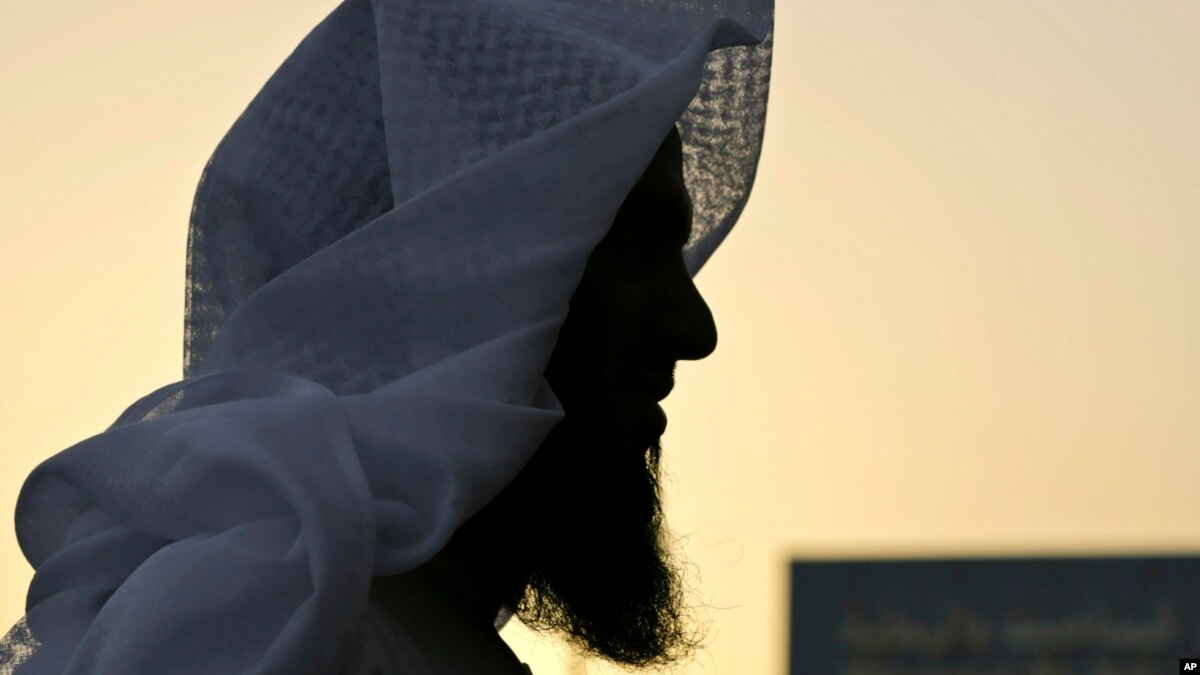
A study by a Saudi research center is challenging the notion that jihadi fighters are necessarily disenfranchised and lacking opportunity, with its lead researcher saying Thursday that a new generation of Saudi militants are relatively well-educated, not driven purely by religious ideology and show little interested in suicide missions.
The 40-page study published by the King Faisal Center for Research and Islamic Studies looked at 759 Saudi recruits who joined the Islamic State group mostly between 2013 and 2014. That's roughly a third of the overall number of Saudis who fought in Syria. The data was drawn from leaked Islamic State group entry documents.
The Saudi Interior Ministry previously said that 2,500 Saudis had gone to Syria in the years before the kingdom criminalized fighting abroad in early 2014. Only Tunisia sent more foreign fighters. Subsequently, the kingdom was the target of numerous IS group attacks that killed dozens of people, as well as in Kuwait.
Researcher Abdullah bin Khaled Al-Saud said the fighters were neither loners nor social outcasts but appear to have been motivated by the heightened sectarianism that began to color the 2011 Syrian revolution as it slid into armed conflict.
A turning point came when the Iranian-backed Shiite Hezbollah group decisively committed to join the conflict in May 2013 to defend the Syrian government against the mostly Sunni Muslim resistance.
"That actually was the point when the first wave of Saudis travelling to Syria started to happen," Al-Saud told The Associated Press. "So, I think instability, war and violence certainly plays a major role when it comes to the specific Saudi context."
In contrast, issues of disenfranchisement, poverty and criminal pasts factored heavily in IS fighters hailing from European countries like France, Belgium and the U.K., to name a few.
An AP analysis of some 3,000 leaked IS documents had found that most of the recruits hailing from a range of nationalities, or around 70 percent, came with only the most basic knowledge of Islam - the lowest possible choice on the forms. This created fertile ground for the indoctrination of recruits in line with the group's extremist interpretation of Islam.
The Saudi study released this week, however, found that among Saudi recruits a little more than half said they had basic knowledge of Islam. Much of the rest claimed to have intermediate and advanced religious knowledge.
This was somewhat expected given that all Saudi students are given religious education in schools, according to the study.
"Still, the Saudi contingent's religious fluency should not be exaggerated: 58 percent of Saudi (fighters) acknowledged that they had only basic knowledge of the religion of Islam, and only eight percent claimed to be 'knowledge seekers,'" the report stated.
Unlike fighters from Europe, where many were high school dropouts or unemployed, the Saudi recruits were relatively well educated. Close to 340 had a high school-level education, around 60 had a diploma of some kind, close to 120 had university degrees and five held postgraduate degrees.
"This data demonstrates that the Saudi contingent does not consist of educational underachievers, which can lead to the argument that they were not lacking in socio-economic opportunities," the study said.
The report notes, though, that "education does not necessarily equate with job opportunities, and a sense of relative deprivation may still be relevant" with 15 percent of the Saudi contingent in this study stating they were unemployed.
Also noteworthy, of those who held jobs, 50 had been in the Saudi military or police and 36 were either members of the religious police, imams at mosques or considered themselves to be religious preachers.
Half of the Saudi recruits in this sampling were 20-24 years old, and 22 percent were 25-29 years old. Just 13 percent were over age 30, and 15 percent were under 19 years old, with the youngest just 9 years old.
The overwhelming majority, at 73 percent, were single. Just 18 percent were listed as married, with the rest unknown.
Additionally, the overwhelming majority of these recruits, or 625, volunteered to be fighters. Just nine percent, or 71, signed up to be suicide bombers.
Al-Saud said this suggests the recruits wanted to contribute to this this "exciting project of a Caliphate" that had promised a life more rewarding than death.
Unlike in previous decades of Saudi jihadi recruitment, this latest wave saw the highest ratio of Saudi fighters per the region's population from the landlocked, ultraconservative province of Qassim, north of Riyadh.
Still, in raw numbers, the largest numbers of Saudi recruits - more than a third - came from Riyadh, where 262 fighters of the total 759 originated. The next were Qassim and Mecca province, at 134 fighters each.
Read More Saudi Study: Millennial Jihadis Educated, Not Outcasts : http://bit.ly/2TCcz5b
No comments:
Post a Comment